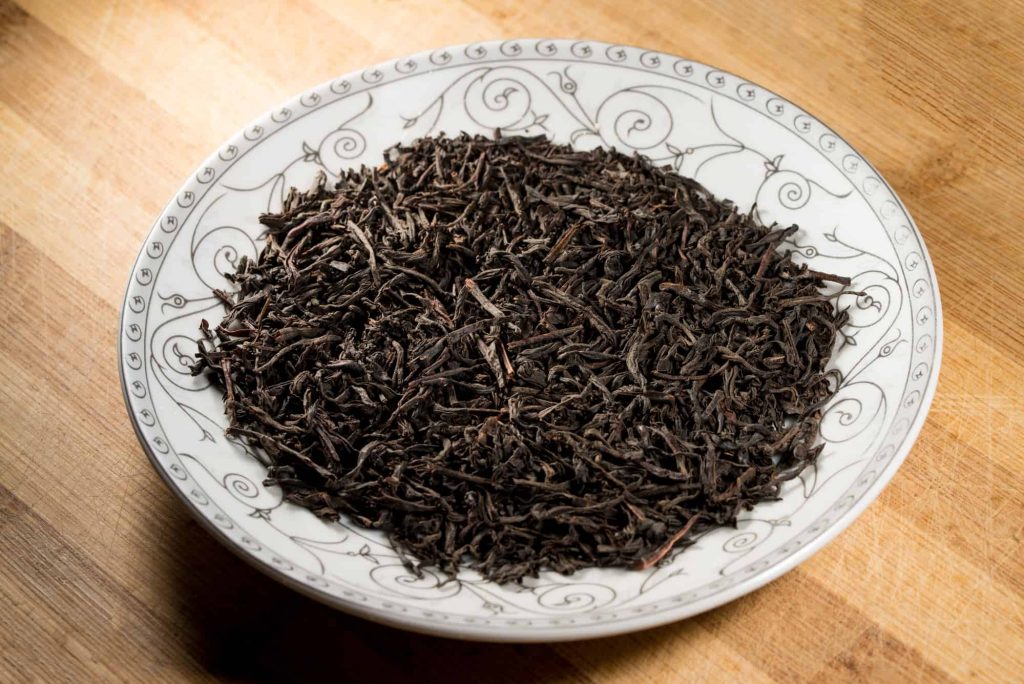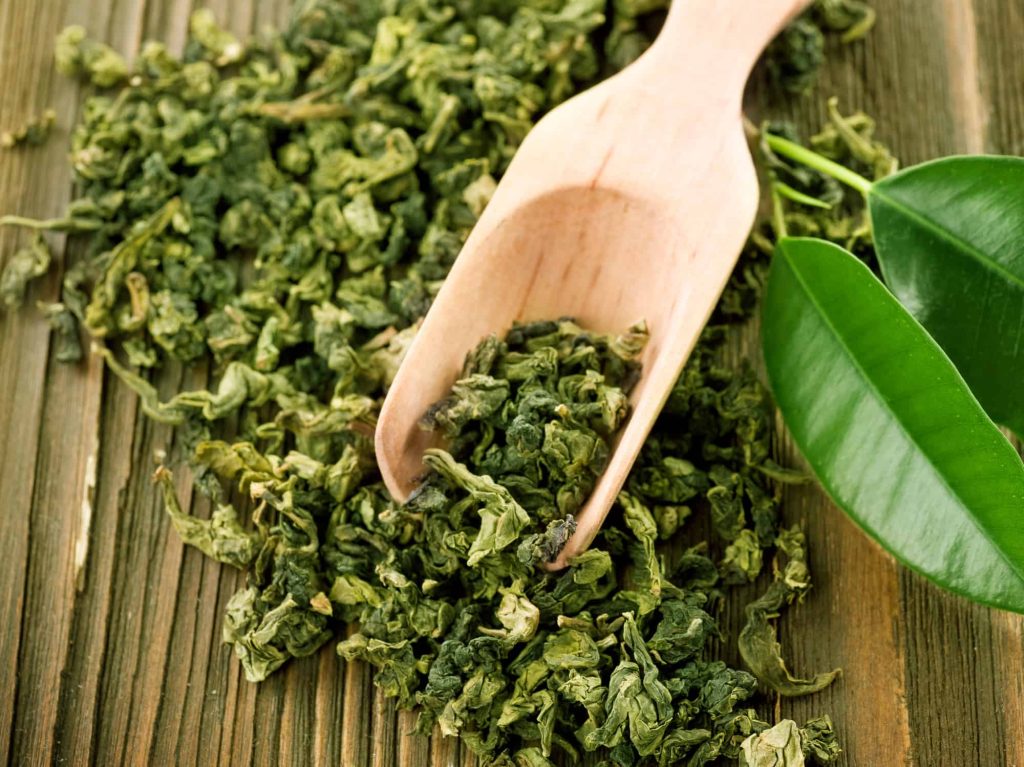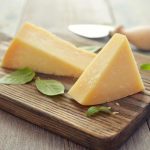Tea is one of those beverages that’s a part of so many different cultures and cuisines. It is comfort in a cup, soothes worries and stress, and is the anchor that brings people together for a visit or a catch-up.
Apart from the social customs and calming effects, people also enjoy drinking tea for the many health benefits of tea, but can you drink or eat the tea leaves?
It is safe to eat tea leaves, but there are not many benefits to it. Whether you choose to eat dry tea leaves or accidentally drink the tea leaves at the bottom of your cup that has been brewed, expect it to taste unpleasantly bitter.
In some cuisines, like Japanese, tea, like matcha tea, is eaten and commonly incorporated into dishes, but for the most part, you benefit more from drinking tea after it’s been steeped. Continue reading to learn more about what will happen if you eat different types of tea leaves.

Can You Eat Tea Leaves? (Before or After Brewing)
While you can eat tea leaves, there is no real reason why you should. The maximum benefit you will get from tea is when it has been brewed. The steeping process reacts chemically with the tea leaves and extracts all the nutrients from them that you will not be able to absorb from eating the tea leaves.
Sometimes eating or drinking organic tea leaves that have been steeped in boiling water is unavoidable. If you’ve made tea with loose tea leaves and not strained it properly or your teabag has torn, organic tea leaves often escape into your cup.
Expect it to taste bitter and have a chewy consistency, and like dry tea leaves, eating it is not a pleasant experience.
There is also no benefit to it since the nutrients come from the brewing process, but they will be easier to digest since they are softer. Once the tea leaves have been steeped, all the nutritional value will be in the drink.
Consider the taste and texture if you’re thinking about eating loose tea leaves or tea from a tea bag. Tea leaves don’t taste nice. Regardless of the type of tea you want to eat, it will be bitter and have an unpleasant consistency.
Some of the most popular teas are black tea, oolong tea, and rooibos, a caffeine-free tea. All of these are most beneficial when steeped, but ingesting some of the leaves won’t cause any harm. Let’s look at each in a bit more detail:
- Black tea: Probably the world’s most enjoyed tea, black tea consumption offers tons of benefits. It’s made from the Camellia sinensis plant by fermenting the leaves and buds. Some of the benefits of drinking it include lowering your blood pressure and reducing the risk of cardiovascular issues.
Plus, the caffeine helps you focus and stay alert. You’ll get no benefits from eating the unbrewed leaves, however (source: WebMD). - Oolong Tea Leaves: Oolong tea is also made from the leaves and buds of the Camellia sinensis, but it’s only partially fermented. It’s a popular Chinese tea known to aid in weight loss and reduce stress.
Tea lovers can only reap these benefits if the Oolong tea is steeped in boiling water – the longer, the better as it has more time to infuse, allowing more nutrients to be extracted (source: Healthline). - Rooibos Tea Leaves: Rooibos is an herbal, caffeine-free tea made from the leaves of the Aspalathus linearis tree. It has a mild, sweet flavor and contains minerals like fluoride and copper. It’s known for its anti-inflammatory properties and is high in antioxidants.
Rooibos tea leaves don’t taste bitter or unpleasant, so if you do happen to eat a few floating in your cup, it won’t taste as awful as some other teas. Rooibos tea is also sometimes used as an ingredient in some South African dishes.
However, if you make your Oolong tea from loose tea leaves and accidentally drink a few floating in your cup, expect the leaves to taste bitter. Like black tea leaves, they may be hard to digest too.

Can You Eat or Drink Green Tea Leaves?
You can eat or drink green tea leaves. Green tea leaves are packed full of nutrients and vitamins that your body can absorb without brewing the tea leaves.
Green tea is made using fresh leaves and buds of the Camellia Sinensis plant and does not require the tea leaves to be steeped for it to be beneficial.
Green tea contains the following:
- Vitamin A
- Vitamin B1
- Vitamin B2
- Vitamin C
- Iron
- Calcium
- Potassium
- Fiber
- Protein
Vitamin A is not water-soluble and can only be absorbed if you eat the tea leaves. Like Vitamin A, fiber and protein are only absorbed if you eat the tea leaves since they don’t infuse in hot water.
Green tea contains lots of antioxidants, and if you eat the leaves, you will ingest more of them than if you drink green tea that has been brewed. The antioxidants in green tea are known to prevent cancer, reduce stress, boost your immune system, improve arthritis pain, and aid in weight loss.
The only risk of eating green tea leaves is that you may consume excessive caffeine since tea leaves contain more caffeine than steeped tea.
Matcha is green tea leaves that have been ground to make a powder. Instead of infusing loose green tea leaves or a green tea teabag into boiling water, the tea powder is dissolved in the hot water, so you are essentially ingesting the leaves. Matcha tea is enjoyed as a drink and is often used as an ingredient in various Japanese dishes.
You should, however, avoid eating green tea leaves if you have certain health problems.
While green tea offers a ton of benefits, it is not for everyone. People who are anemic or have cardiovascular issues should not eat green tea leaves and must avoid drinking green tea.
Pregnant or nursing mothers should also consult their doctor before eating green tea leaves as the caffeine can be passed onto their baby.

If you noticed some occasional bloating after having tea, did you know certain types of tea can cause bloating in some people? Explore my guide for more insights to make informed tea choices.
Can You Eat Tea for the Caffeine Content?
You can eat tea leaves for the caffeine content. If you feel lethargic and need to up your energy levels quickly, eating tea leaves rather than drinking brewed tea will provide you with more caffeine.
If you are looking for a caffeine boost, eating tea leaves before they are steeped will offer you more caffeine.
Tea leaves have a higher percentage of caffeine than coffee, but when coffee is brewed, more caffeine is extracted than when tea is brewed, so you get more caffeine in a cup of coffee than you would in a cup of tea (source: Healthline).
If you eat tea leaves, you could ingest too much caffeine, disrupting your sleep pattern and causing anxiety or restlessness.
In severe cases, too much caffeine has been linked to headaches and migraines, so for this reason, you should not eat too many tea leaves.
Except for green tea leaves, eating tea leaves offers minimal health benefits. While it is safe to eat, it often tastes bitter, and many tea varieties can be difficult to digest.
I hope this article provided you with helpful information about eating tea leaves, should you choose to!
If you’ve been drinking a lot of loose leaf tea recently, have you ever wondered about the best way to dispose of the used tea leaves? Uncover practical tips and valuable information in our article!





Comments are closed.